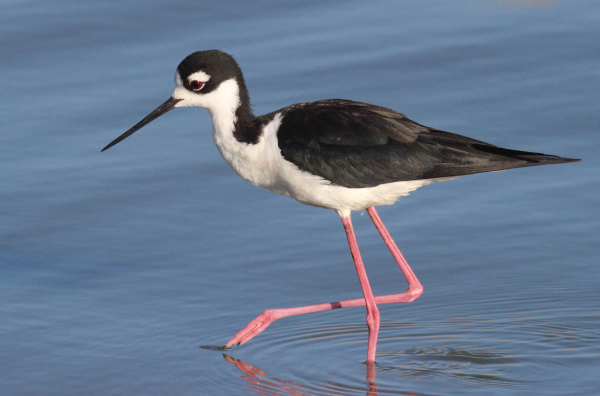
Quebec birders found a First Provincial Record for the second week in a row; the most recent first record species is a Black-necked Stilt.
|
Last week, a most impressive 38 rare bird reports were documented by birders across the continent! For the second week in a row, Quebec birders found a First Provincial Record, this time a first-time Black-necked Stilt. Two First State Records were also recorded, including a First State Record Wilson’s Plover in Delaware and a Red-footed Booby for Oregon. There were also some Eurasian birds in last week’s rare bird highlights, including a Fifth North American Record Eurasian Oystercatcher photographed in far northern Newfoundland.
It’s also interesting, if not surprising, that multiple rare birds were sighted in a number of locations last week, including the Chico Basin Ranch in Colorado; Queens, New York; St. Paul Island in far western Alaska, and Queens County, Nova Scotia. That certainly puts a big exclamation point on these locations for rare bird sighting potential!
NORTH AMERICAN RECORD
Fifth North American Record Eurasian Oystercatcher – Lushes Bight, Newfoundland
STATE & PROVINCIAL RECORDS
First State Record Red-footed Booby – offshore Newport, Oregon
First Provincial Record Black-necked Stilt – Baie-du-Fabvre, Quebec
First State Record Wilson’s Plover – Bower’s Beach, Delaware
Second State Record Hooded Oriole – near Sandborn, Wisconsin
Second State Record Bullock’s Oriole – Sleepy Eye, Minnesota
Fourth State Record Neotropic Cormorant – Fairfax Station, Virginia
Sixth State Record Bronzed Cowbird – Bowman Reservoir, Nevada
Seventh State Record Le Conte’s Sparrow – Gorge Lake, Washington
Seventh State Record Limpkin – Mountain Island Lake, North Carolina
REALLY RARE SIGHTINGS
European Golden Plover – Goulds, Newfoundland
Lesser Sand Plover – St. Paul Island, Alaska
Black-tailed Godwit – St. Paul Island, Alaska
Fea’s Petrel – offshore Hatteras, North Carolina
Painted Bunting – River Hills, Manitoba
Worm-eating Warbler – Bismarck, North Dakota
Piping Plover – Cote Nord, Quebec
Canada Warbler – Chico Basin Ranch, Colorado
Mourning Warbler – Chico Basin Ranch, Colorado
Hepatic Tanager – Chico Basin Ranch, Colorado
REALLY RARE DUCKS
Black-bellied Whistling Duck – Lununberg County, Nova Scotia
Black-bellied Whistling Ducks – Queens County, Nova Scotia
Black-bellied Whistling Ducks – Montour County, Pennsylvania
Black-bellied Whistling Duck – Cape May, New Jersey
Black-bellied Whistling Ducks – Monmouth County, New Jersey
MORE REALLY RARE BIRDS
Tricolored Heron – Knox County, Maine
Mississippi Kite – South Kingston, Rhode Island
Burrowing Owl – Queens, New York
Sage Thrasher – Queens, New York
Laughing Gull – Halifax, Nova Scotia
Black Vulture – Queens County, Nova Scotia
Costa’s Hummingbird – Halfmoon Bay, British Columbia
Brown Pelicans – Niagara and Durham Counties, Lake Ontario, Ontario
Although there were only four continuing rare birds to report, these birds are proving to have exciting stories of their own, including the Common Crane in Arizona, which has apparently returned to the area for the third consecutive year, the Little Egrets that continue to show up each spring in southern Maine, and the Zenaida Dove in Florida. There’s also a new twist on the male Slate-throated Redstart reported in Big Bend National Park in west Texas, which has apparently been joined by a mate and the female is in nest building mode; this may be the first record of the species nesting north of the Mexican border! This week’s extensive list of rare and ultra-rare birds emphasizes that this spring is proving to be excellent for rare bird sightings.
For more information, see the American Birding Association’s Rare Bird Alert at http://blog.aba.org/2019/05/rare-bird-alert-may-24-2019.html Special Thanks to the ABA, and Nate Swick, who does such a great job of compiling the ABA’s Rare Bird Alert, which we use to prepare this weekly replay.
You can often find more information about individual rare bird sightings from the state rare bird alert listserves that you can access at http://birding.aba.org/ or at https://www.facebook.com/groups/ABArare/C